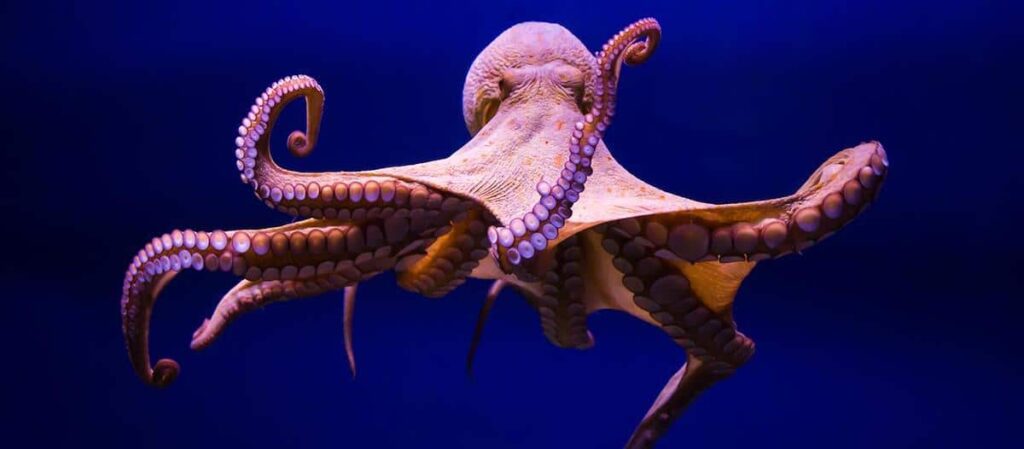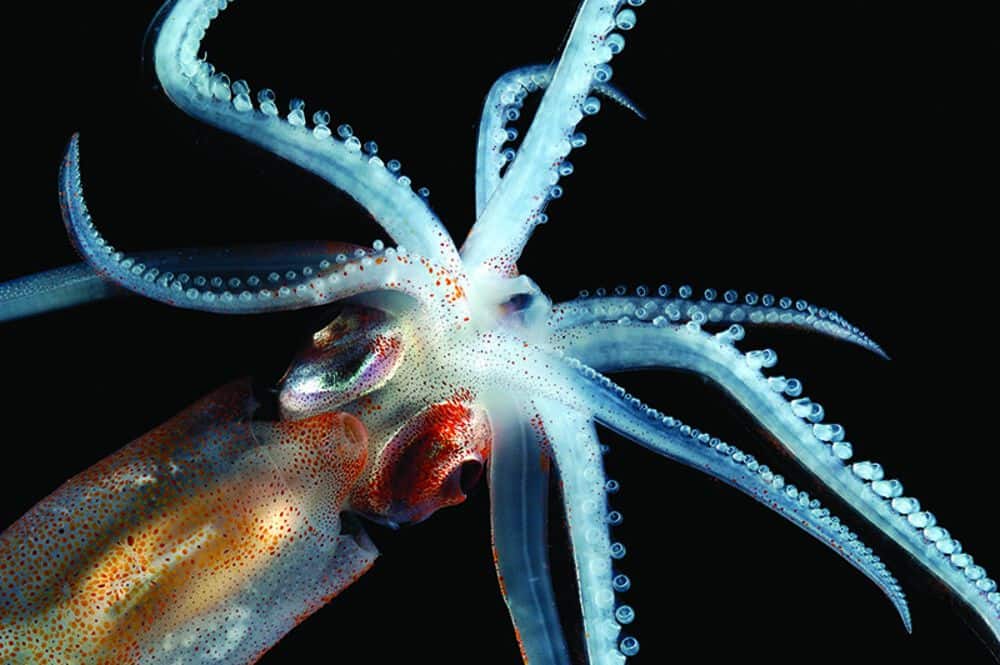Octopus genome
The ability of the cephalopod brain to immediately modify its neural network features, which have a significant influence on memory and learning capacity, was one of the key reasons why researchers started to look into the molecular foundation of the cephalopod brain. These particular skills provide a genomic explanation that includes biological processes that enable tissues to quickly modify proteins in order to change their function.
The octopus genome is high in transposons, sometimes known as “jumping genes,” which may rearrange themselves on the genome, claim researchers from the University of Chicago. Researchers discovered increased transposon expression in brain tissues, despite the fact that their function in octopuses is unknown. Transposons are known to have the power to influence how genes are regulated and are thought to be crucial in determining how the genome is structured.
With a few notable exceptions, Caroline Albertin, co-lead author and graduate student in Organismal Biology and Anatomy at the University of Chicago, said that the octopus essentially has a typical invertebrate genome that has just been completely rearranged, as if it had been put into a blender and mixed. This was a completely unexpected finding and results in genes being put in new genomic contexts with distinct regulatory elements.
Are they aliens indeed?

A new genetic code map for octopuses has been discovered, and it is so unusual that it may really belong to a “alien” species.
The key finding of the scientific paper was that octopuses share “Alien” DNA.
The scientific world has been shaken by this assertion, which has produced a stir among marine scientists who appeared to be both astonished and interested at the same time.
No one believes the octopus to be a “alien” from another planet, hence the “joke” about it being extraterrestrial is obviously false. But the notion that the genomes of closely related animals should share a great deal of similarity defies accepted evolutionary theory.
Bottom line
The answers to many of life’s biggest riddles may have been right under our noses all along if we would only chose to pay more attention to our ocean and all that resides within it.
Due in part to their capacity to modify their DNA on the fly, these species, which now include octopuses, squid, and cuttlefish, have genetic makeups that are just as bizarre as the animals themselves.
In the end, there is still much to learn about the genome because scientists have only begun to unravel its complexity. It is still unclear which conclusion is correct, but one thing is certain: life on Earth is incredibly diverse and frequently puzzling. Nevertheless, because the technique is still cutting-edge, genome mapping initiatives can teach us a lot about the world that we don’t yet understand.









